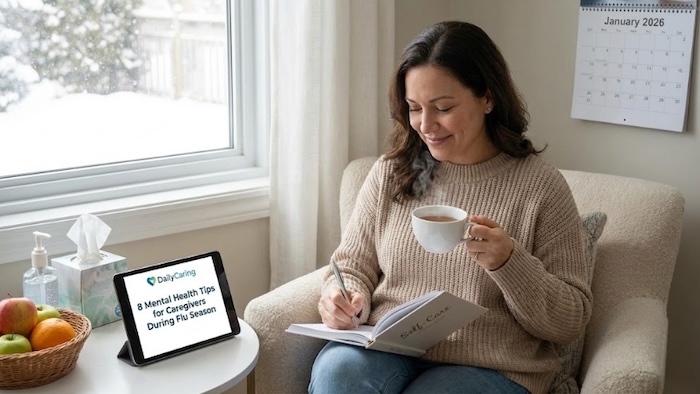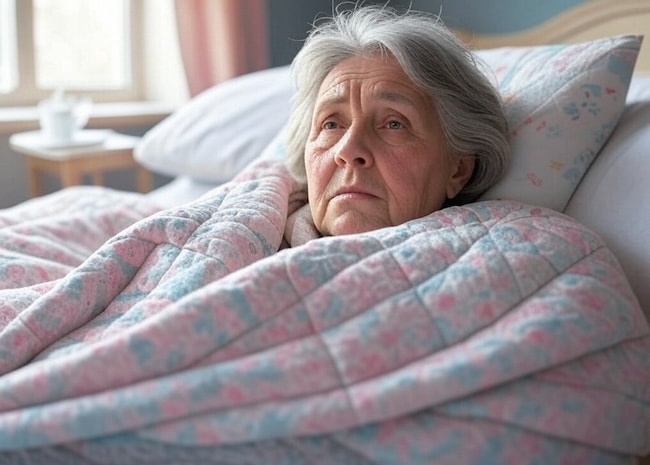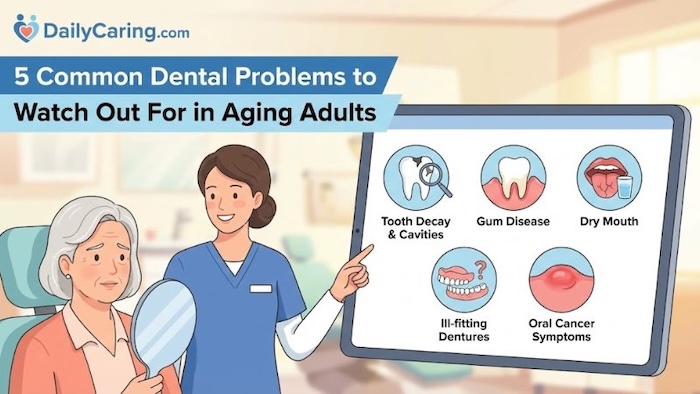To say the flu season is challenging is an understatement, especially for stressed-out caregivers.
Fear and anxiety, along with self-isolation, cause strong or overwhelming emotions and may even contribute to depression. On top of that, extra caregiving responsibilities can lead to fatigue, anger, or resentment.

To protect your health and overall well-being, taking care of your mental health has become even more essential.
8 Tips to Protect Your Health During Flu Season
1. Maintain a regular daily routine and healthy lifestyle
In times of uncertainty, having a regular daily routine provides some comforting structure and predictability.
Plus, maintaining a healthy lifestyle by eating well, moving our bodies, and getting fresh air and sun will boost our health, well-being, and immune system.
Many caregivers already have a daily routine because they’re caring for an older adult who needs one.
But if you’ve let your own routine lapse in the past few weeks, go back to it for a couple of weeks to see if it improves your well-being.
For example, go to sleep and wake up around the same time every day. Get dressed and ready for the day, as you did before the pandemic. Eat meals at regular times and fit in some fresh air and exercise each day.
2. Improve your sleep
As a caregiver, sleep is often in short supply and isn’t always of the best quality.
With coronavirus worries and self-isolation challenges on top of reduced support, it might be even tougher now to get a good night’s sleep.
But rest is one of the most effective ways to boost the immune system and improve well-being.
Plus, being more rested increases your ability to be patient with your older adult and to ride the waves of change.
To improve sleep quality, we’ve got some helpful articles:
- Relax and fall asleep faster – This Battle-Tested Technique Helps Caregivers Fall Asleep in Minutes
- Meditations to soothe you into deep sleep – Improve Caregiver Sleep with 5 Relaxing Guided Meditations for Deep Sleep
- Weighted blankets for physically calming your body so you can sleep better (they’re not just for people with dementia) – Weighted Blankets in Dementia Care Reduce Anxiety and Improve Sleep
- This New York Times article suggests these two free meditative soundtracks that helped end the writer’s years of chronic insomnia.
3. Focus on what you can control
The news is scary. Individuals, companies, or other organizations might be doing things that you don’t agree with. But there’s nothing you can do about them.
So don’t worry about things outside your control – it will only make you anxious and angry.
Instead, let go and focus only on what you can control.
Rein in those thoughts by imagining some positive “what if” scenarios, like: what if nobody in my family gets sick? – after all, positive things also happen.
Then, come back to focus on the present reality and the things you can control.
4. Lighten up on yourself
Dealing with the flu and/or COVID is stressful and has forced major lifestyle changes on everyone. So we shouldn’t expect ourselves to adjust right away and be able to do everything that we had been doing.
That doesn’t mean that you’re doing a bad job as a caregiver. It means that you’re human and you’re taking on a lot right now, both physically and emotionally. So give yourself a break. You’re doing your best to get through a really challenging time.
The first step is to notice when you’re being hard on yourself or holding yourself to an unfair standard.
The next step is to use positive self-talk to give yourself a break from self-criticism. Speak to yourself like a kind, supportive friend would.
Hearing positive, supportive statements in your head reduces stress and is a lot more pleasant and calming than a steady stream of negativity.
5. Plan for your loved one's care in case you get sick
It’s scary to think about getting so sick that you aren’t able to care for your own loved ones. To combat the fear and take a practical precaution, create a backup care plan now, while you’re well.
This could put your mind at ease because your plan won’t leave you scrambling or worrying while you’re recovering.
5 Steps for Creating a Backup Caregiving Plan
1. Choose someone to take over for you, if needed
Identify family, friends, or neighbors who could step in if you aren’t able to care for your aging parent or loved one. Ideally, they’d live close by or within a few hours' driving distance.
Talk with them to ask if they’d be willing to take on responsibility if you get sick.
If possible, you may want to choose more than one person in case they become ill themselves, or to make it a team effort.
2. Create a care plan
Write down essential information that the temporary caregiver will need in order to care for your older adult.
Include:
- Names and contact information for their doctors
- Their medications – with dosage and refill instructions
- Names and contact information for any in-home caregivers
- An overview of their daily routine
- If they have Alzheimer’s or dementia, note triggers, effective calming techniques, or other special instructions
- Instructions on caring for any pets
3. Identify non-caregiving helpers
To lighten the load, identify people who could help with everyday tasks.
This would help the temporary caregiver or you if you do get sick, but your symptoms are manageable at home.
For example, could someone drop off cooked meals, groceries, or medication refills? Are there people who could phone or video chat with your older adult to keep them company while you rest? Could someone come over to do a load of laundry or clean high-touch surfaces?
4. Plan a quarantine zone and prep supplies
If you do get sick, but your symptoms are manageable at home, you’ll need a quarantine area and supplies to reduce the risk of passing the virus to your older adult.
Find a space where you can isolate yourself and avoid contact with other members of the household. Ideally, this would be a room away from the rest of the house and a separate bathroom.
Have cloth face coverings or masks on hand so you can cover your face anytime you leave your isolation area to reduce the risk of infecting others.
Instruct anyone else in the household or any helpers to frequently wash their hands thoroughly and regularly clean and disinfect high-touch surfaces while wearing a face covering.
5. Don't exert yourself
If you do get sick, but your symptoms are manageable at home, mentally plan ahead to do only essential tasks, keeping your efforts to an absolute minimum.
Whenever possible, your time should be spent resting and focusing on getting well rather than doing chores like vacuuming or laundry.
Focusing on your recovery will get you back on your feet faster.
6. Take mini breaks throughout the day
As much as you need and deserve a long break, taking tiny breaks throughout the day will improve your physical and emotional health and help you keep going.
These much-needed breaks relieve stress, keep you focused on important tasks, and help you think more clearly.
The most important thing is to find a place where you can be alone. That could be your room, the bathroom, the car, a corner of the porch or yard, your front step, or just outside your front door.
Our top mini break suggestions:
- Throughout the day, consciously relax your jaw, neck, and shoulders to relieve overall tension in your body. Set an alert on your phone to get regular reminders.
- Drink some water and have a healthy snack.
- Watch a funny show or video clip.
- Call a good friend.
- Move and stretch your body to loosen tense muscles and get your blood flowing.
- Set a timer for 5 or 10 minutes and play a game on your smartphone or online. USA Today has a wide assortment of free online games and puzzles here.
- Read a chapter of a book.
- Do a 2 or 5-minute guided meditation at the free website Calm.com or use the Calm app
We share even more ideas for quick breaks in these 6 articles:
- 10 Ways for Caregivers to Take a Quick Break
- 14 Practical Ways to Relieve Caregiver Stress
- 5 of the Best Mobile Apps for Caregiver Stress Relief
- 25 Quick Journal Prompts That Reduce Caregiver Stress and Improve Health
- Stress Relief for Caregivers: Boost Your Mood with a 10 Minute Exercise
- Caregivers Get Speedy Meditation Benefits with 5 Simple Apps
7. Remember, you are not alone
It’s never been more important to connect with other people. Everyone’s lives may be different, but flu season and other viral infections aren't going away anytime soon.
Reach out to supportive family and friends and spend some time talking on the phone or have a cup of tea together over a video call.
To connect with fellow caregivers in similar situations, join an online caregiver support group where you can get support 24/7.
We’ve got some great suggestions here – 11 Private Support Groups for Caregivers on Facebook. Try a few groups to find one that suits you best.
8. Use humor to relieve tension
Give yourself permission to notice and laugh when something is funny. Laughter eases tension and makes life more positive.
You could even use social media in a positive way by following accounts that share funny, positive memes about life during a pandemic. When you need a mood boost, scroll through and have a good laugh.
Recommended for you:
- 8 Shelter-in-Place Coronavirus Tips for Senior Care in Your Home
- Nursing Home Lockdown: 6 Ways to Stay Connected with Seniors During a Coronavirus Scare
- Coronavirus Senior Care: Top Caregiver Questions Answered
- Coronavirus and Seniors: What You Need to Know
- Coronavirus Scam Alert: 7 Tips for How Seniors Can Avoid Them
About the Author

Connie is the founder of DailyCaring.com and was a hands-on caregiver for her grandmother for 20 years. (Grandma made it to 101 years old!) She knows how challenging, overwhelming, and all-consuming caring for an older adult can be. She also understands the importance of support, especially in the form of practical solutions, valuable resources, and self-care tips.













